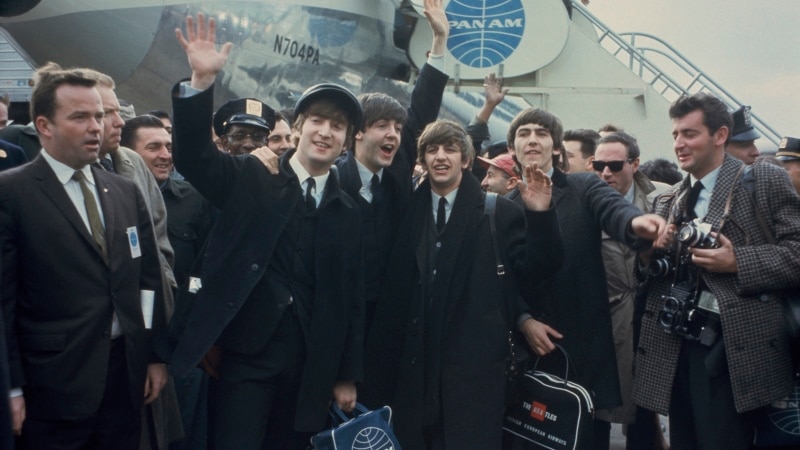NEW YORK — Likely most people have seen iconic footage of the Beatles performing on "The Ed Sullivan Show." But how many have seen Paul McCartney during that same U.S. trip feeding seagulls off his hotel balcony?
That moment — as well as George Harrison and John Lennon goofing around by exchanging their jackets — are part of the Disney+ documentary "Beatles '64," an intimate look at the English band's first trip to America that uses rare and newly restored footage. It streams Friday.
"It's so fun to be the fly on the wall in those really intimate moments," says Margaret Bodde, who produced alongside Martin Scorsese. "It's just this incredible gift of time and technology to be able to see it now with the decades of time stripped away so that you really feel like you're there."
"Beatles '64" leans into footage of the 14-day trip filmed by documentarians Albert and David Maysles, who left behind 11 hours of the Fab Four goofing around in New York's Plaza hotel or traveling. It was restored by Park Road Post in New Zealand.
"It's beautiful, although it's black and white and it's not widescreen," says director David Tedeschi. "It's like it was shot yesterday and it captures the youth of the four Beatles and the fans."
The footage is augmented by interviews with the two surviving members of the band and people whose lives were impacted, including some of the women who as teens stood outside their hotel hoping to catch a glimpse of the Beatles.
"It was like a crazy love," fan Vickie Brenna-Costa recalls in the documentary. "I can't really understand it now. But then, it was natural."
The film shows the four heartthrobs flirting and dancing at the Peppermint Lounge disco, Harrison noodling with a Woody Guthrie riff on his guitar and tells the story of Ronnie Spector sneaking the band out a hotel back exit and up to Harlem to eat barbeque.
The documentary coincides with the release of a box set of vinyl albums collecting the band's seven U.S. albums released in '64 and early '65 — "Meet The Beatles!," "The Beatles' Second Album," "A Hard Day's Night" (the movie soundtrack), "Something New," "The Beatles' Story," "Beatles '65" and "The Early Beatles." They had been out of print on vinyl since 1995.
The Beatles' U.S. visit in 1964 also included concerts at Carnegie Hall, a gig at the Washington Coliseum in Washington, D.C., and a visit to Miami, where the band met Muhammad Ali. The documentary shows members of the band reading newspaper coverage of themselves.
Viewers may learn that the Beatles — now revered — were often met with ridicule or rudeness from the older generation. At the British Embassy in New York, the four were treated as lower class, while renowned broadcaster Eric Sevareid, doing a piece for CBS, compared the reaction to the Beatles to the German measles.
"You're nothing but four Elvis Presleys," one reporter told them during a press conference, to which the boys good-naturedly started gyrating as Ringo Starr screamed "It's not true!"
"Why the establishment was against them is sort of a mystery to me," says Tedeschi. "I think older people believed that music would go back to the big bands."
Musicians like Sananda Maitreya, Ron Isley and Smokey Robinson also discuss the Fab Four and what they took from Black music. There also are interviews with residents of Harlem, critic Joe Queennan and filmmaker David Lynch, who saw the Beatles play the Washington Coliseum.
"Beatles '64" tries to explain why young people were so besotted by John, Paul, George and Ringo. Their visit came just months after the assassination of President John. F. Kennedy and Tedeschi argues Beatlemania was a salve for a nation in mourning.
"Part of it is I think that the light was just off. They were depressed. Everything was dark. And 'I Want to Hold Your Hand' lit them up," says Tedeschi.
As McCartney says in the documentary: "Maybe America needed something like the Beatles to lift it out of mourning and just sort of say 'Life goes on.'"


